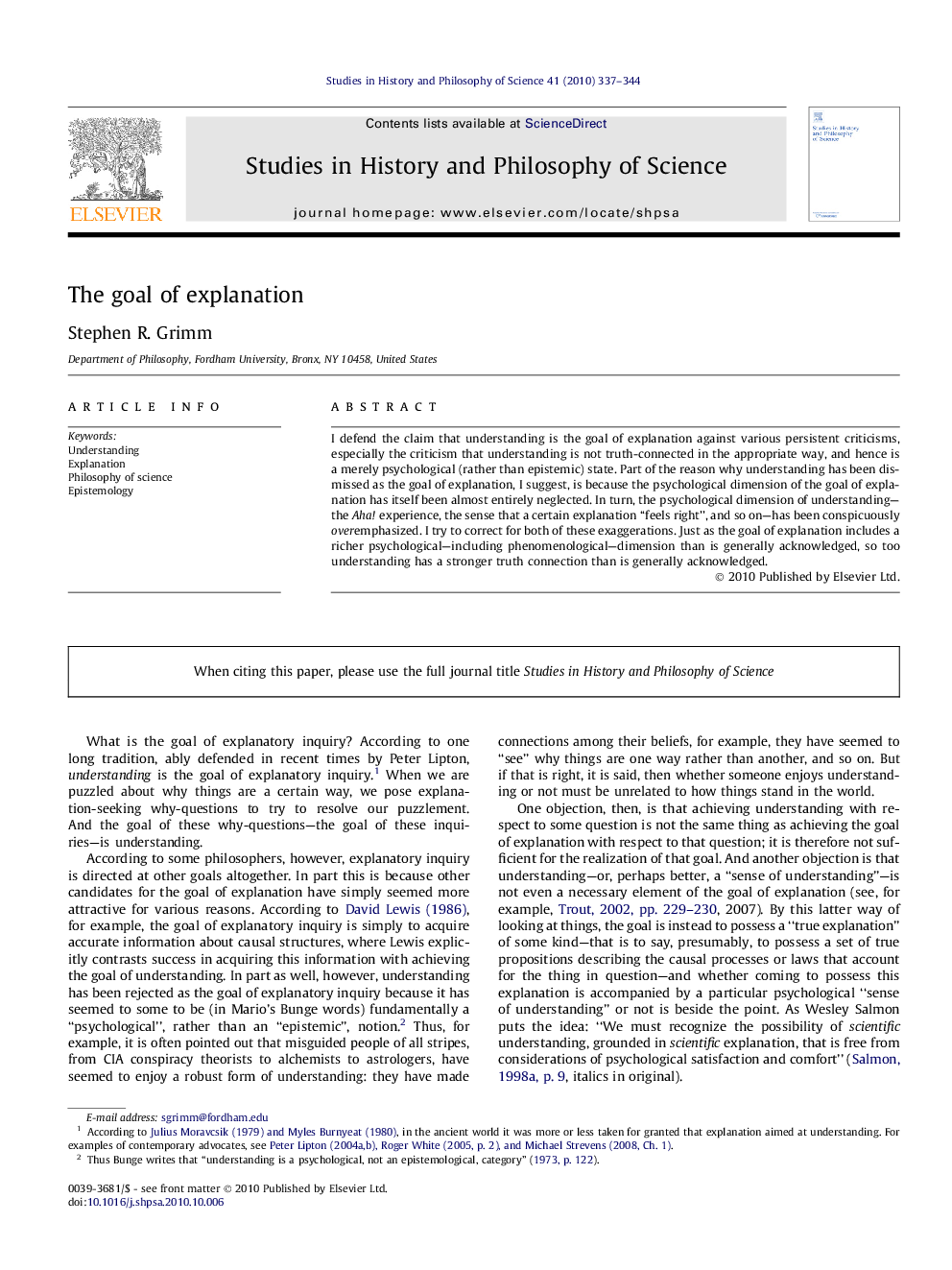| Article ID | Journal | Published Year | Pages | File Type |
|---|---|---|---|---|
| 1160624 | Studies in History and Philosophy of Science Part A | 2010 | 8 Pages |
I defend the claim that understanding is the goal of explanation against various persistent criticisms, especially the criticism that understanding is not truth-connected in the appropriate way, and hence is a merely psychological (rather than epistemic) state. Part of the reason why understanding has been dismissed as the goal of explanation, I suggest, is because the psychological dimension of the goal of explanation has itself been almost entirely neglected. In turn, the psychological dimension of understanding—the Aha! experience, the sense that a certain explanation “feels right”, and so on—has been conspicuously overemphasized. I try to correct for both of these exaggerations. Just as the goal of explanation includes a richer psychological—including phenomenological—dimension than is generally acknowledged, so too understanding has a stronger truth connection than is generally acknowledged.
